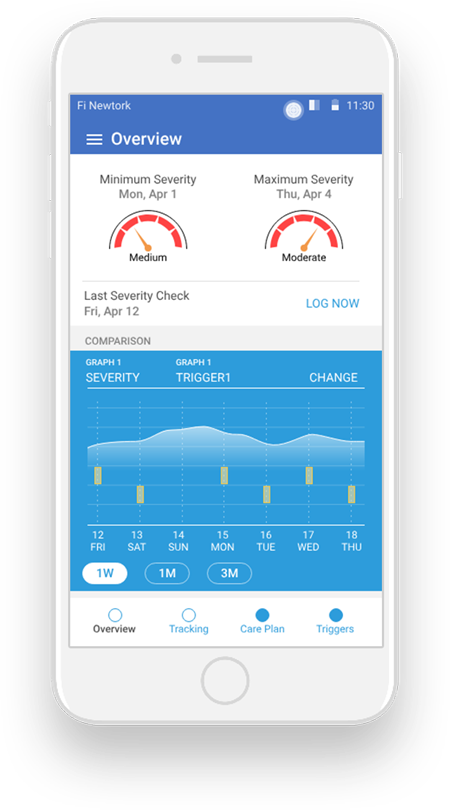How Air Quality affects Eczema?

Atopic Dermatitis (AD) is an inflammatory skin disease that is characterized by red, itchy and in some cases scaly skin. AD or as commonly known as Eczema is a growing health concern especially in children due to its high prevalence and associated low quality of life. Researchers don’t know the exact reason or cause of eczema but believe that genes, environmental triggers, or interactions between them contribute to the onset of AD. We cannot do much about the genetic combination of an individual, so the only option left is to identify and control risk factors and triggers from the environment & surroundings.
Effect of Air pollution on Eczema
Air is everywhere and so are the particles polluting it. Due to increasing urbanization both indoor and outdoor air pollution is rising, and these are well-known environmental risk factors for Eczema. One of the important factors to be considered with regards to people suffering from Eczema is Outdoor Air Quality and especially when they are planning to be outdoors. You can control your indoor pollutants but cannot do much when it comes to outdoor.
A variety of pollutants in the air, such as tobacco smoke, volatile organic compounds, formaldehyde, toluene, nitrogen dioxide, and particulate matter, have been found to act as risk factors for the aggravation of Atopic Dermatitis causing eczema flares.
The sources of these pollutants also vary. They can be volcanoes, forest fires, industrial and mechanical wastes from automobiles, factories, and power plants. It has also been found that even toxic pollutants from automobiles in road traffic significantly increase the chance of eczema flares. These pollutants are so effective that even short-term exposure to air containing these pollutants is enough to exacerbate the symptoms.
These chemicals apart other airborne allergens that affect eczema include pollen and dust mites. These allergens enter the body through the skin via hair follicles setting up an immune response. These foreign particles cause the body to create chemicals that cause redness and swelling to occur, creating a substantial amount of inflammation.
When the skin is exposed to these chemicals and pollutants it triggers skin inflammation and causes damage to the skin’s natural protective barrier. As result water evaporates from the skin, resulting in dry skin and ultimately worsens eczema causing flares.
Tips:
- Always check Realtime air Quality and pollution levels at your location or the place you are planning to travel before leaving and cover your face using scarves or mask.
- Record, track, identify and avoid your environmental triggers that induce the development or aggravation of Atopic Dermatitis to prevent the flares.
- Children with pre-existing AD should be managed with strict avoidance of various aggravating factors as well as appropriate skincare and reduction of inflammation.
- Environmental tobacco smoke (ETS) is a penitential risk factor for aggravating eczema symptoms. Eczema sufferers should quit smoking and stop hanging out with people who smoke.
- Topical steroids and emollients should be used to alleviate the symptoms and control the flares.
- Keep yourself moisturized, a good moisturizer hydrates the skin and creates a barrier between your skin and free radicals and other pollutants. To protect yourself, wear sunscreen on your face and neck.
- Drink plenty of water to keep your skin hydrated and healthy enough to fight against these pollutants.
- Rinse your body or take a bath whenever you are outdoors for a considerable amount of time or are exposed to pollution so as to get rid of pollutants from your skin.


